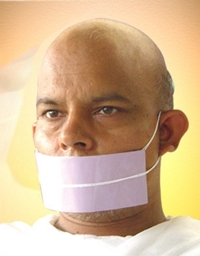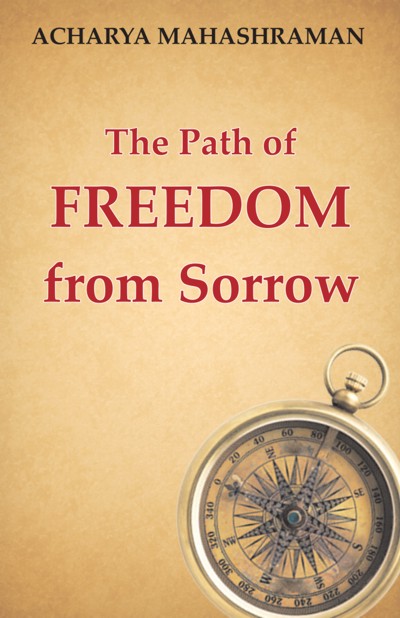As we grow, our knowledge increases and straightness in the life decreases. This is a fact. It is a normal process that after childhood deceit begins to become more of a common attribute than honesty. A child's normal makeup has both straightness and foolery. Both of these states are suitable to a child. Foolery in an adult is never desirable. A child due to his naivety can put his hands into fire or he can try to catch a snake. These acts - taken out of a lack of knowledge or experience can be harmful for the child. On the other hand, the child is innocently honest, which is a desirable attribute. The same kind of honesty is expected in an adult too.
Deceit in the form of dishonesty or treachery is always avoidable. Truth and straightness go hand in hand. Truth cannot live without straightness and straightness without truth. Similarly, deceit and lying are partners. These partners walk close together.
Having straightness does not mean that you do not understand the perspective of others. A better form of straightness is not to be fraudulent even after understanding evils done by others. Agam says that the person who is very much involved in devious activities is assured of an animal form for his next life. As Acharya Tulsi has mentioned in 'vyavaharbodh'
Sahaj tapasya śhraman ki, arjav mardav bhav Yugal sukhi ih par-bhave, yah kiska anubhav?
Yaugalik (twins) people are happy naturally and they take birth in heaven after death, though they are neither shravak (religious lay-followers) nor will they become monks. Yet in the next life they go to heaven because of their straightness.
There are four kinds of truth:
- Kay-rijuta - The physical action expressing the true meaning
- Bhasa-rijuta - Words expressing the true meaning
- Bhavrijuta- Thoughts which express the true meaning
- Avisamvadan-yog - Non-hypocrisy or harmony between words and deeds
Conversely, non-truth is also four-fold:
- Hypocrisy of body - Truth-disguising physical action.
- Hypocrisy of words - Truth-disguising verbal action.
- Hypocrisy of mind - Truth-disguising mental action.
- Non-harmonious action - Disharmony between words and action.
For the practice of straightness, it is necessary to apply all four types of truths and to forbid all the types of untruth. In this context here is an interesting series of questions and answers.
Q- Who can attain salvation?
A- The one who has righteousness in life.
Q- Who holds righteousness in life? A- The one who is pure.
Q- Who is pure?
A- The one who is simple.
In conclusion, we can say that the base of salvation is straightness. We find its ground in one hymn in agam:
Sohi ujjuyabhuyass, dhammo suddhass chitthai Nivvanam paramam jai, ghayasittav pavae
Once, a man from a village went to a city close by. He visited a goldsmith and requested - 'O goldsmith! I have brought one container filled with fresh ghee of cow. Please take it and in return give me some ornaments. The goldsmith took the ghee happily and said - 'Oh yes man! Take the gold jewellery. Your wife can use it.' Both of them exchanged the stuffs and in pleasant mood the goldsmith said good bye to him. The reason behind their happiness was - the man was thinking that he has deceived the goldsmith and goldsmith was thinking that he had cheated the man. The man directly arrived at his home with the jewellery and said to his wife "Take this jewellery. Today I have deceived the goldsmith." After a while his happiness disappeared as soon as he knew that it was not golden jewellery but was of brass.
On the other side, the goldsmith also went to his wife and said - 'The container is full of fresh ghee. Today I have deceived a man who came to me for gold.' But after some time the happiness of goldsmith turned into sorrow when he came to know that the ghee was only at the surface level in the container and rest of it was full of cow dung. Neither of goldsmith and the man was happy.
The society has to suffer when such fraud prevails in society. Honesty and straightness are essential for not only spirituality but for a happy social life as well.
To enhance straightness, it is necessary to have the goal of developing straightness and every night before sleeping and after waking up this resolution needs to be repeated: 'I do not have to deceive anyone. I must develop straightness.' Thereafter he needs to bring this into his behaviour. He should express the truth as it exists.
Once, a question was asked to Jesus Christ, 'Who can attain the kingdom of God?' Then holding a child Jesus replied -'The one who has the true and pure heart like this child can ascend to the kingdom of God.'
The person who wants to practice straightness should keep in his mind the straightness of a child as the role model and should connect himself strongly so that he practices straightness with understanding.
According to Jainism, deceit is one sin of eighteen sins. And it is said in agam that 'maya mittani nasei,' it means deceit destroys relations. It is required for both a spiritual practitioner and layman to apply straightness in his behaviour and avoid deceiving with firm conviction.
 Acharya Mahashraman
Acharya Mahashraman
